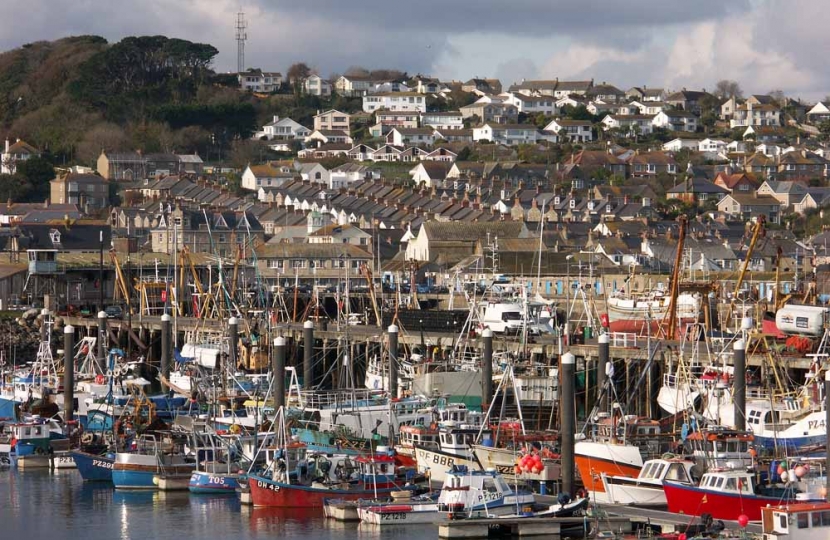
Speaking ahead of a debate on the latest reading of the Bill, Mr Thomas said: “Brexit represents a significant opportunity to learn from mistakes of the past, and construct a tailor-made, world-leading system of fisheries management that will champion and protect our fishing heritage – as well as preserve fish stocks for generations to come.
“It is difficult to overstate the importance to our industry of striking the right balance within the Fisheries Bill: fishing communities in the South West want to see the Bill secure long-term sustainability as well provide the flexibility needed for the UK to deliver on its ambition to be truly world-leading in modern fisheries management.
“We must therefore ensure that a balanced, evidenced-based approach is taken to fisheries management for any challenges that may arise in future.”
As part of this approach, Mr Thomas, who is in regular contact with the Newlyn-based Cornwall Fish Producers Organisation (CFPO) which represents more than 170 Cornish fishing vessels, spoke against an amendment to the Bill which would to install a heavy burden of regulation and bureaucracy on fishermen in the belief that the industry is pre-occupied with greater access to fish and putting economic gain before environmental protection.
“This is not the record of the South West fleet which has supported restraint and caution in favour of fish stock recovery over many years,” he said.
“No fisherman I know sets out to bankrupt the resources future fishermen and women will depend upon.
“The industry and the environmental sector agree that the sustainability of fisheries should be paramount – those involved in the industry have depended on abundant, mixed fisheries for centuries and the UK fishing industry has been an enthusiastic partner working with environmental groups.
“The amendment would enshrine primacy of environmental sustainability and in doing so, immediately curtail the UK’s ability to develop adaptable, pragmatic management practices.
“Under the Common Fisheries Policy, where cuts to fishing opportunities for key stocks for South West fisheries have been recommended, the industry has stood behind those decisions to ensure robust fisheries for decades to come. Indeed, there are a number of examples of South West fishermen advocating for more cautious catch levels than those suggested by the EU.
“What is needed to create a new legislative framework for our fisheries is a balanced approach with long-term environmental sustainability at its heart.”



